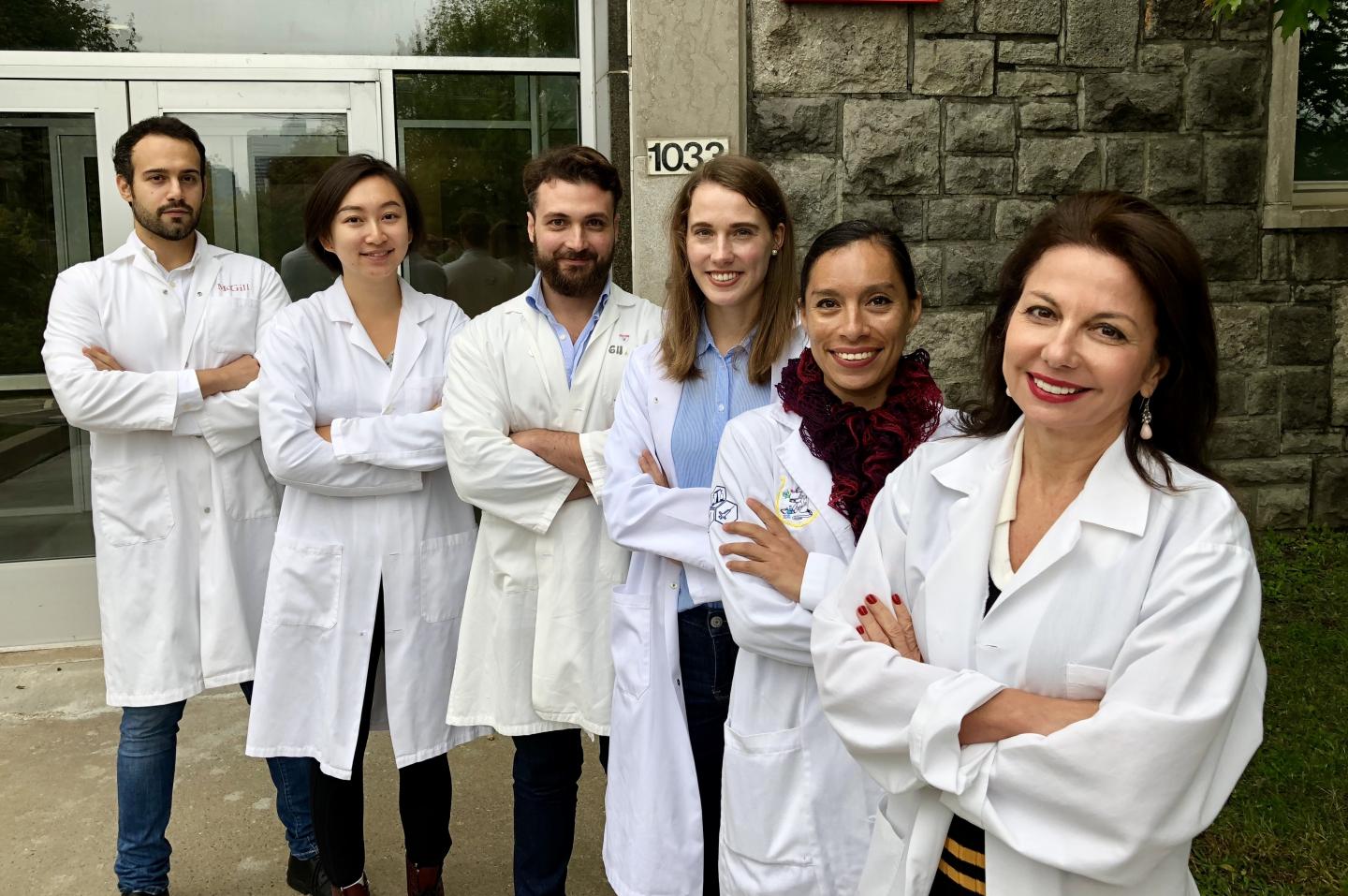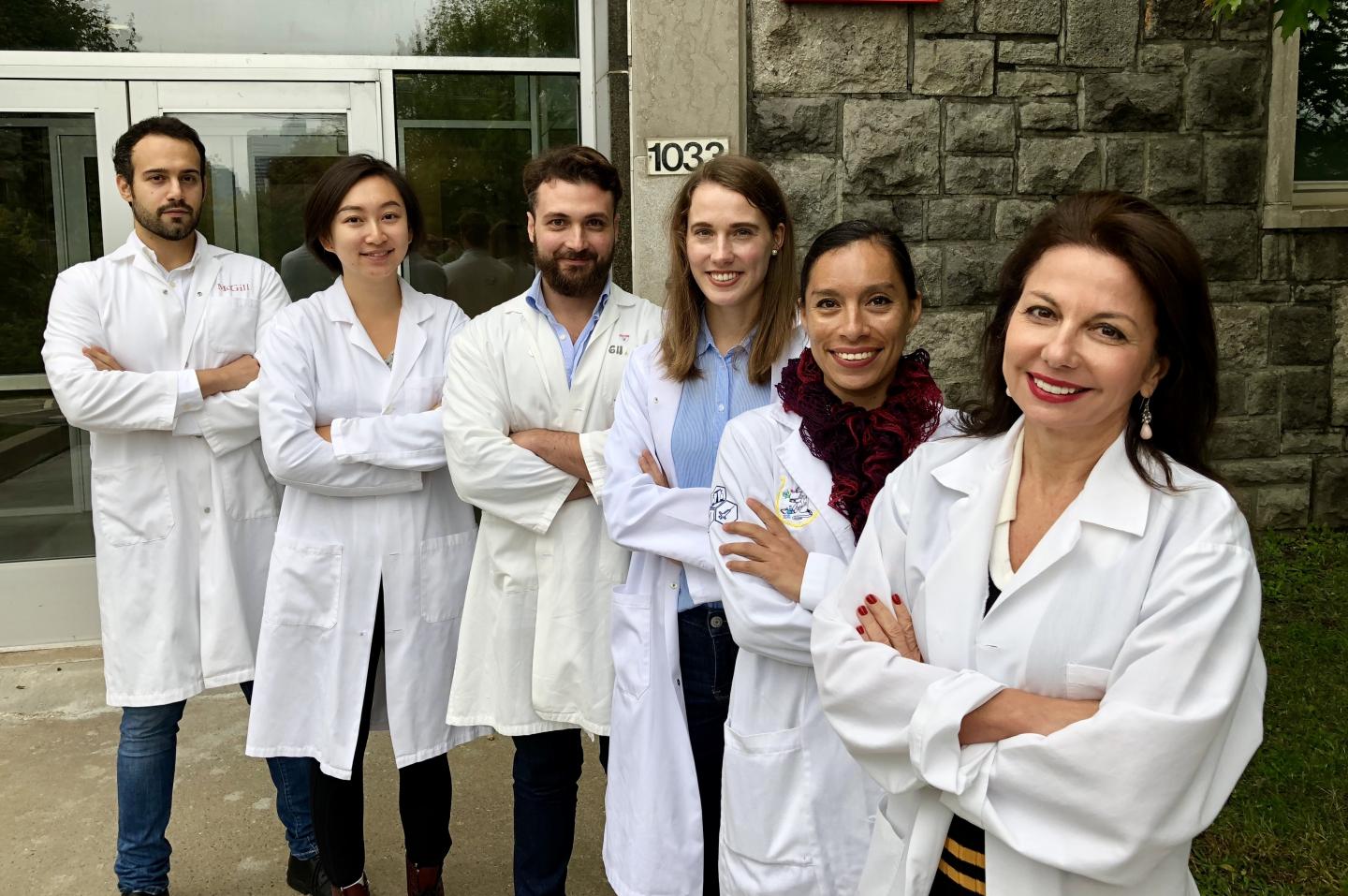
Credit: Paul Logothetis/MUHC
In the wake of cannabis legalization, a team of scientists at the Research Institute of the McGill University Health Centre (MUHC) and McGill University have delivered encouraging news for chronic pain sufferers by pinpointing the effective dose of marijuana plant extract cannabidiol (CBD) for safe pain relief without the typical "high" or euphoria produced by the THC. The findings of their study have been published in the journal PAIN (The Journal of the International Association for the Study of Pain).
Cannabis indica and sativa are the two main cannabis strains that produce the pharmacological principles known as tetrahydrocannabinol (THC) and cannabidiol (CBD). Dr. Gabriella Gobbi's team demonstrated that CBD does not act on the CB1 cannabinoid receptors like THC but through the mechanism that binds specific receptors involved in anxiety (serotonin 5-HT1A) and pain (vanilloid TRPV1). Researchers were able to extrapolate the exact dosage of CBD displaying analgesic and antianxiety properties without the risk of addiction and euphoria classically produced by the THC.
"We found in animal models of chronic pain that low doses of CBD administered for seven days alleviate both pain and anxiety, two symptoms often associated in neuropathic or chronic pain," says first author of the study Danilo De Gregorio, a post-doctoral fellow at McGill University in Dr. Gobbi's laboratory.
Lead author Dr. Gobbi, a researcher in the Brain Repair and Integrative Neuroscience (BRaIN) Program of the RI-MUHC, sees this as advancement for the evidence-based application of cannabis in medicine with CBD offering a safe alternative to THC and opioids for chronic pain, such as back pain, sciatica, diabetic, cancer and post-trauma pain.
"Our findings elucidate the mechanism of action of CBD and show that it can be used as medicine without the dangerous side effects of the THC," says Dr. Gobbi, who is also Professor of Psychiatry at the Faculty of Medicine at McGill University and staff psychiatrist at the MUHC. "This research is a new advancement for an evidence-based application of cannabis in medicine."
Despite widespread public usage, little clinical studies exist on CBD, which became legal in Canada on October 17, 2018, following the passage of Canada's Cannabis Act.
"There is some data showing that CBD provides pain relief for humans but more robust clinical trials are needed ," says Dr. Gobbi, a recent grant recipient for her study of the pharmalogical effects of CBD.
###
About the Study
The study 'Cannabidiol modulates serotonergic transmission and reverses both allodynia and anxiety-like behavior in a model of neuropathic pain' was co-authored by Danilo De Gregorio (First author); Ryan McLaughlin; Luca Posa; Rafael Ochoa Sanchez; Justine Enns; Martha Lopez Canul; Matthew Aboud; Sabatino Maione; Stefano Comai et Gabriella Gobbi (Corresponding author).
DOI: 10.1097/j.pain.0000000000001386
This work was supported by a matching grant (PSR-SIIRI) from the Ministère de l'Économie Science et Innovation du Québec (MESI, Program PSR-SIIRI) and Aurora Cannabis Inc.
About the Research Institute of the MUHC
The Research Institute of the McGill University Health Centre (RI-MUHC) is a world-renowned biomedical and healthcare research centre. The Institute, which is affiliated with the Faculty of Medicine of McGill University, is the research arm of the McGill University Health Centre (MUHC) – an academic health centre located in Montreal, Canada, that has a mandate to focus on complex care within its community. The RI-MUHC supports over 420 researchers and close to 1,200 research trainees devoted to a broad spectrum of fundamental, clinical and health outcomes research at the Glen and the Montreal General Hospital sites of the MUHC. Its research facilities offer a dynamic multidisciplinary environment that fosters collaboration and leverages discovery aimed at improving the health of individual patients across their lifespan. The RI-MUHC is supported in part by the Fonds de recherche du Québec – Santé (FRQS). http://www.rimuhc.ca.
Media contacts:
Paul Logothetis
Communications Officer
McGill University Health Centre
Tel: 514-934-1934, extension 34319
Cel: 514-210-6376
[email protected]
Julie Robert
Communications Coordinator – Research
McGill University Health Centre
Cel: 514-971-4747
[email protected]
Media Contact
Paul Logothetis
[email protected]
514-210-6376
@cusm_muhc
http://www.muhc.ca/
Original Source
http://www.ncbi.nlm.nih.gov/pubmed/30157131 http://dx.doi.org/10.1097/j.pain.0000000000001386





